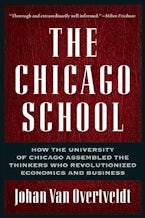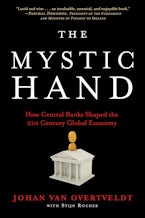
The Chicago School
How the University of Chicago Assembled the Thinkers Who Revolutionized Economics and Business
Published by: Agate Publishing
432 Pages
- Paperback
- 9781932841190
- Published: January 2009
When Richard Nixon said We are all Keynesians now” in 1971, few could have predicted that the next three decades would result in a complete transformation of the global economic landscape. The transformation was led by a small, relatively obscure group within the University of Chicago’s business school and its departments of economics and political science. These thinkers including Milton Friedman, Gary Becker, George Stigler, Robert Lucas, and others revolutionized economic orthodoxy in the second half of the 20th century, dominated the Nobel Prizes awarded in economics, and changed how business is done around the world. Written by a leading European economic thinker, The Chicago School is the first in-depth look at how this remarkable group came together. Exhaustively detailed, it provides a close recounting of the decade-by-decade progress of the Chicago School's evolution. As such, it's an essential contribution to the intellectual history of our time.


